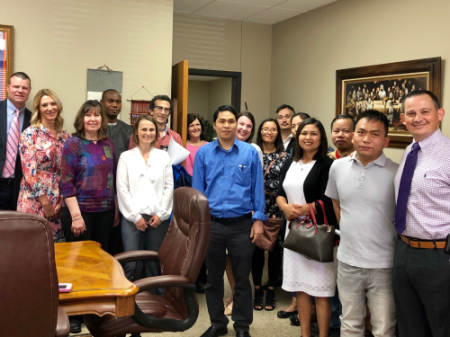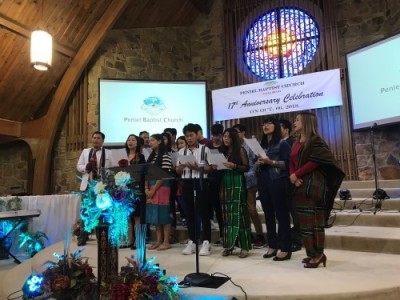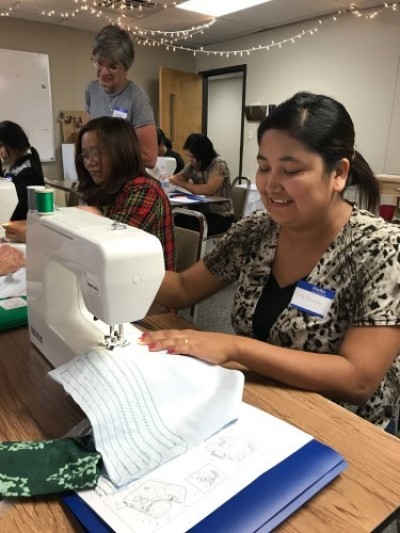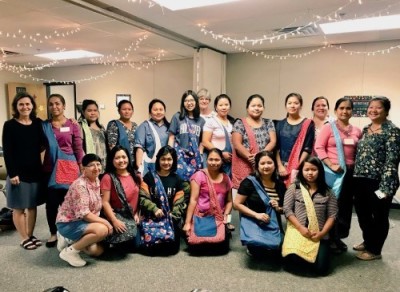US committed to religious freedom but forsakes refugees?

When the White House announced an executive order pledging a commitment to international religious freedom in June, many Christians applauded. In churches like the one I pastor, religious liberty is a key issue. Likewise, global Christians remain hopeful that America will continue its historic commitment to protecting religious liberty for others around the world.
The order calls religious freedom “America’s first freedom” and “a moral and national security imperative.” It also states our nation’s historic commitment “to ensure equal rights and legal protections for individuals and groups regardless of belief.” But the order says nothing about the gravest consequence of global religious persecution: the refugee crisis.

Any U.S. commitment to defending religious freedom will inevitably fail if it doesn’t address refugee resettlement. Displacement remains the world’s largest and most widespread humanitarian emergency, resulting in greater danger than most diseases, including COVID-19. Yet the glaring reality is that the United States —blessed with the largest economy in the world — has drastically reduced its commitment to refugees, including Christian refugees, in the last four years.
According to a recent report released by Open Doors USA and World Relief, the U.S. will receive roughly 90% fewer Christian refugees from the countries where they face the most severe persecution in 2020 than in 2015.
Our church in Tulsa, Okla., is connected to Christians from various countries whose religious freedom is constantly in danger. Many now live in our own city, having come to the U.S. fleeing religious persecution at home. The largest group of Christian refugees in Tulsa, numbering nearly 10,000, are from Myanmar (Burma), which has had multiple cases of infringements on religious freedom, including severe acts of violence.

In January of this year, a local Burmese pastor reached out to me about the grave concerns circulating among Tulsa’s Burmese/Zomi community. The White House had just announced its latest list of countries from which travel is suspended and, to the great surprise of many, Myanmar was first on the list. “Travel Ban 4.0,” as some have called it, went into effect in January. The Burmese community feared a dramatic decrease in family reunification visas, and those fears came true.

The pastor asked me: "Will the woman in my church whose husband was scheduled to join their family here in Tulsa be able to come? Will the aging parents of another married couple now be forced to remain in Myanmar until they die? How much longer will the brother of one of my deacons be forced to remain in the refugee camp in a neighboring country?"
I had no optimistic answers to give.
Yet without hesitation, I can say countless positive things about the ways Burmese families in Tulsa enrich our local community. They are kind and welcoming people and incredibly thankful to live here. After fleeing an environment of poverty and persecution, followed by the arduous process of resettlement, the U.S. has become their home. Many have opened businesses or work in essential industries. They have quickly moved away from using public resources and have become taxpayers who also contribute to charitable organizations and churches. Many have actually repaid their own resettlement costs. According to New American Economy, natives of Myanmar along with the other five countries in “Travel Ban 4.0” earned almost $22.0 billion annually, and paid more than $6.1 billion in taxes in 2018.
Families from Myanmar have also done much to improve our city’s faith. Burmese pastors have founded more than a dozen churches in Tulsa, some of which have hundreds of members. Though most of these churches worship in Burmese dialects, some also now offer services in English. In addition to their local outreach ministries, they also send missionaries to other parts of the world.
Until this year, Myanmar held steady near the top on the list of countries from which refugees were resettled into the U.S. Because Myanmar was a high priority, family reunification for Burmese Christians was also possible through other immigration channels. But now, many families in our city are in danger of remaining separated from loved ones indefinitely.

The more our church has engaged with our Burmese neighbors, the more we’ve cherished them and learned just how important refugee resettlement and family reunification visas are for protecting their families and faith. If the immigrant visa and travel ban from Myanmar persists, along with a shutdown of all refugee resettlement, it will be a crushing blow to many families who reside in our community. As they suffer, we all suffer.
I am thankful that our national leaders have made religious freedom a top priority, but without robust support for refugees, they're undercutting the foundation of “America’s first freedom” significantly. If we as Americans truly believe protecting religious freedom to be a “moral imperative,” we must renew our commitment to resettle refugees as soon as possible. The Church has an important role to play in this process, but the key decisions regarding refugee resettlement must come from Washington, DC. I pray that our leaders chart a safe and healthy path forward for refugees, so that we can once again be the world’s leading nation in standing up for the vulnerable.
Eric Costanzo is lead pastor at South Tulsa Baptist Church in Tulsa, Oklahoma, and often writes about global issues affecting the Church. You can follow him on Twitter @eric_costanzo or visit his website at http://ericcostanzo.me.





















